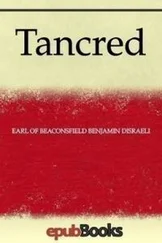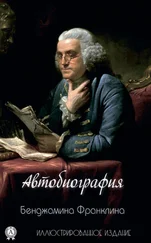Бенджамин Дизраэли - Coningsby
Здесь есть возможность читать онлайн «Бенджамин Дизраэли - Coningsby» весь текст электронной книги совершенно бесплатно (целиком полную версию без сокращений). В некоторых случаях можно слушать аудио, скачать через торрент в формате fb2 и присутствует краткое содержание. Год выпуска: 2014, Издательство: epubBooks Classics, Жанр: Классическая проза, на английском языке. Описание произведения, (предисловие) а так же отзывы посетителей доступны на портале библиотеки ЛибКат.
- Название:Coningsby
- Автор:
- Издательство:epubBooks Classics
- Жанр:
- Год:2014
- ISBN:нет данных
- Рейтинг книги:4 / 5. Голосов: 1
-
Избранное:Добавить в избранное
- Отзывы:
-
Ваша оценка:
- 80
- 1
- 2
- 3
- 4
- 5
Coningsby: краткое содержание, описание и аннотация
Предлагаем к чтению аннотацию, описание, краткое содержание или предисловие (зависит от того, что написал сам автор книги «Coningsby»). Если вы не нашли необходимую информацию о книге — напишите в комментариях, мы постараемся отыскать её.
Coningsby — читать онлайн бесплатно полную книгу (весь текст) целиком
Ниже представлен текст книги, разбитый по страницам. Система сохранения места последней прочитанной страницы, позволяет с удобством читать онлайн бесплатно книгу «Coningsby», без необходимости каждый раз заново искать на чём Вы остановились. Поставьте закладку, и сможете в любой момент перейти на страницу, на которой закончили чтение.
Интервал:
Закладка:
'Aldborough was worse,' said Mr. Taper.
'Terrible,' said Tadpole. 'They said there was no use discussing the Reform Bill in our House. I believe Rigby's great speech on Aldborough has done more towards the reaction than all the violence of the Political Unions put together.'
'Let us hope for the best,' said the Duke, mildly. ''Tis a bold step on the part of the Sovereign, and I am free to say I could have wished it postponed; but we must support the King like men. What say you, Rigby? You are silent.'
'I am thinking how very unfortunate it was that I did not breakfast with Lyndhurst this morning, as I was nearly doing, instead of going down to Eton.'
'To Eton! and why to Eton?'
'For the sake of my young friend here, Lord Monmouth's grandson. By the bye, you are kinsmen. Let me present to your Grace, MR. CONINGSBY.'
Chapter II.
The political agitation which for a year and a half had shaken England to its centre, received, if possible, an increase to its intensity and virulence, when it was known, in the early part of the month of May, 1832, that the Prime Minister had tendered his resignation to the King, which resignation had been graciously accepted.
The amendment carried by the Opposition in the House of Lords on the evening of the 7th of May, that the enfranchising clauses of the Reform Bill should be considered before entering into the question of disfranchisement, was the immediate cause of this startling event. The Lords had previously consented to the second reading of the Bill with the view of preventing that large increase of their numbers with which they had been long menaced; rather, indeed, by mysterious rumours than by any official declaration; but, nevertheless, in a manner which had carried conviction to no inconsiderable portion of the Opposition that the threat was not without foundation.
During the progress of the Bill through the Lower House, the journals which were looked upon as the organs of the ministry had announced with unhesitating confidence, that Lord Grey was armed with what was then called a 'carte blanche' to create any number of peers necessary to insure its success. But public journalists who were under the control of the ministry, and whose statements were never contradicted, were not the sole authorities for this prevailing belief. Members of the House of Commons, who were strong supporters of the cabinet, though not connected with it by any official tie, had unequivocally stated in their places that the Sovereign had not resisted the advice of his counsellors to create peers, if such creation were required to carry into effect what was then styled 'the great national measure.' In more than one instance, ministers had been warned, that if they did not exercise that power with prompt energy, they might deserve impeachment. And these intimations and announcements had been made in the presence of leading members of the Government, and had received from them, at least, the sanction of their silence.
It did not subsequently appear that the Reform ministers had been invested with any such power; but a conviction of the reverse, fostered by these circumstances, had successfully acted upon the nervous temperament, or the statesman–like prudence, of a certain section of the peers, who consequently hesitated in their course; were known as being no longer inclined to pursue their policy of the preceding session; had thus obtained a title at that moment in everybody's mouth, the title of 'THE WAVERERS.'
Notwithstanding, therefore, the opposition of the Duke of Wellington and of Lord Lyndhurst, the Waverers carried the second reading of the Reform Bill; and then, scared at the consequences of their own headstrong timidity, they went in a fright to the Duke and his able adviser to extricate them from the inevitable result of their own conduct. The ultimate device of these distracted counsels, where daring and poltroonery, principle and expediency, public spirit and private intrigue, each threw an ingredient into the turbulent spell, was the celebrated and successful amendment to which we have referred.
But the Whig ministers, who, whatever may have been their faults, were at least men of intellect and courage, were not to be beaten by 'the Waverers.' They might have made terms with an audacious foe; they trampled on a hesitating opponent. Lord Grey hastened to the palace.
Before the result of this appeal to the Sovereign was known, for its effects were not immediate, on the second morning after the vote in the House of Lords, Mr. Rigby had made that visit to Eton which had summoned very unexpectedly the youthful Coningsby to London. He was the orphan child of the youngest of the two sons of the Marquess of Monmouth. It was a family famous for its hatreds. The eldest son hated his father; and, it was said, in spite had married a lady to whom that father was attached, and with whom Lord Monmouth then meditated a second alliance. This eldest son lived at Naples, and had several children, but maintained no connection either with his parent or his native country. On the other hand, Lord Monmouth hated his younger son, who had married, against his consent, a woman to whom that son was devoted. A system of domestic persecution, sustained by the hand of a master, had eventually broken up the health of its victim, who died of a fever in a foreign country, where he had sought some refuge from his creditors.
His widow returned to England with her child; and, not having a relation, and scarcely an acquaintance in the world, made an appeal to her husband's father, the wealthiest noble in England and a man who was often prodigal, and occasionally generous. After some time, and more trouble, after urgent and repeated, and what would have seemed heart–rending, solicitations, the attorney of Lord Monmouth called upon the widow of his client's son, and informed her of his Lordship's decision. Provided she gave up her child, and permanently resided in one of the remotest counties, he was authorised to make her, in four quarterly payments, the yearly allowance of three hundred pounds, that being the income that Lord Monmouth, who was the shrewdest accountant in the country, had calculated a lone woman might very decently exist upon in a small market town in the county of Westmoreland.
Desperate necessity, the sense of her own forlornness, the utter impossibility to struggle with an omnipotent foe, who, her husband had taught her, was above all scruples, prejudices, and fears, and who, though he respected law, despised opinion, made the victim yield. But her sufferings were not long; the separation from her child, the bleak clime, the strange faces around her, sharp memory, and the dull routine of an unimpassioned life, all combined to wear out a constitution originally frail, and since shattered by many sorrows. Mrs. Coningsby died the same day that her father–in–law was made a Marquess. He deserved his honours. The four votes he had inherited in the House of Commons had been increased, by his intense volition and unsparing means, to ten; and the very day he was raised to his Marquisate, he commenced sapping fresh corporations, and was working for the strawberry leaf. His honours were proclaimed in the London Gazette, and her decease was not even noticed in the County Chronicle; but the altars of Nemesis are beneath every outraged roof, and the death of this unhappy lady, apparently without an earthly friend or an earthly hope, desolate and deserted, and dying in obscure poverty, was not forgotten.
Coningsby was not more than nine years of age when he lost his last parent; and he had then been separated from her for nearly three years. But he remembered the sweetness of his nursery days. His mother, too, had written to him frequently since he quitted her, and her fond expressions had cherished the tenderness of his heart. He wept bitterly when his schoolmaster broke to him the news of his mother's death. True it was they had been long parted, and their prospect of again meeting was vague and dim; but his mother seemed to him his only link to human society. It was something to have a mother, even if he never saw her. Other boys went to see their mothers! he, at least, could talk of his. Now he was alone. His grandfather was to him only a name. Lord Monmouth resided almost constantly abroad, and during his rare visits to England had found no time or inclination to see the orphan, with whom he felt no sympathy. Even the death of the boy's mother, and the consequent arrangements, were notified to his master by a stranger. The letter which brought the sad intelligence was from Mr. Rigby. It was the first time that name had been known to Coningsby.
Читать дальшеИнтервал:
Закладка:
Похожие книги на «Coningsby»
Представляем Вашему вниманию похожие книги на «Coningsby» списком для выбора. Мы отобрали схожую по названию и смыслу литературу в надежде предоставить читателям больше вариантов отыскать новые, интересные, ещё непрочитанные произведения.
Обсуждение, отзывы о книге «Coningsby» и просто собственные мнения читателей. Оставьте ваши комментарии, напишите, что Вы думаете о произведении, его смысле или главных героях. Укажите что конкретно понравилось, а что нет, и почему Вы так считаете.
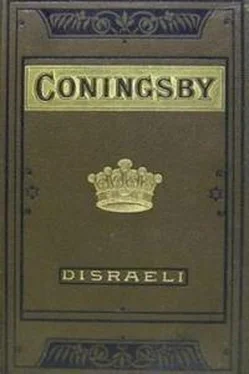
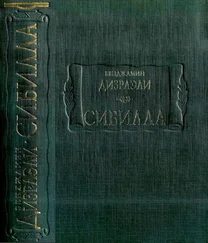
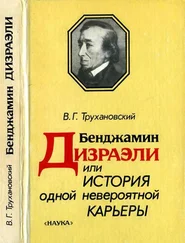
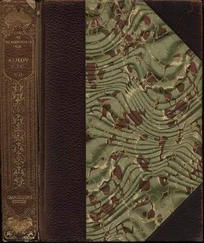

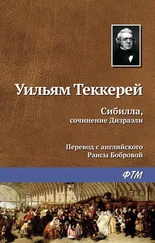
![Мелани Бенджамин - Госпожа отеля «Ритц» [litres]](/books/384861/melani-bendzhamin-gospozha-otelya-ritc-litres-thumb.webp)

